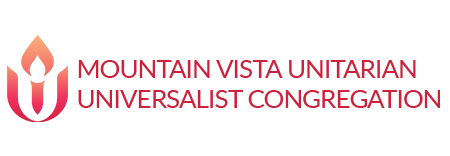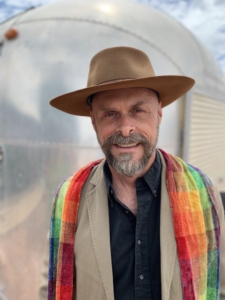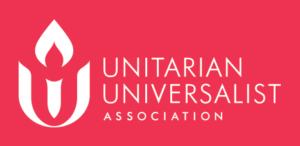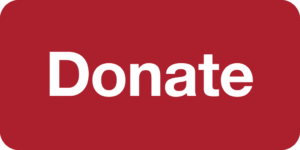🡐 Back to OWL Home
OWL: Grades 7 – 9
Unit One: Introduction
This session quickly engages participants and establishes the Our Whole Lives (OWL) setting as a comfortable place to talk about even the toughest subjects. Participants craft rules to promote positive group interaction and mutual respect. They explore the Circles of Sexuality—a broad definition of sexuality—that will be refined and clarified throughout the program. They learn about the content, format, and underlying values of Our Whole Lives.Workshop 2: Examining Values
Through activities including an exciting Values Auction, participants clarify their own values, share points of view, and reflect on the strength of their values. They become familiar with and are asked to respect values held by others.Workshop 3: The Language of Sexuality
Participants explore the diversity of sexual language and its impact, usefulness, and appropriateness in different contexts. After building lists of terms for sexual anatomy and activity, participants consider the language they and others use against the values they explored in Workshop 2. Standards are set for language used in the Our Whole Lives setting.
Unit Two: You, As a Sexual Being
Workshop 4: Anatomy and Physiology
This workshop reinforces accurate information and corrects misunderstanding about sexual anatomy and physiology. Participants learn that knowing and talking about sexual organs and their functions is both normal and appropriate.
This workshop reinforces accurate information and corrects misunderstanding about sexual anatomy and physiology. Participants learn that knowing and talking about sexual organs and their functions is both normal and appropriate.
Workshop 5: Personal Concerns about Puberty
Participants have an opportunity to talk about personal questions and concerns regarding their own growth and development. The session may explore accurate information, clear up myths, and/or provide answers to participants’ questions. In the process, participants become aware of diverse body types, sizes, behaviors, and rates of physical, emotional, and social development. Optional sex-specific discussion groups give youth an opportunity to talk about personal aspects of sexual health and hygiene with adults who have experienced puberty’s changes.
Workshop 6: Body Image
This workshop defines body image as a person’s perception of, attitudes toward, and feelings about their body. Participants explore societal influences on body image and learn how positive and negative body image can affect a person’s sexual attitudes, decision-making, and behaviors.
Workshop 7: Gender Identity
By building a chart defining biological sex, gender identity, gender expression, and sexual orientation, participants visualize the differences between sexual identity constructs. They have a chance to gain or deepen understanding of the ways biological sex, gender identity, and gender expression may align or not align for different people. In addition, they discuss some of the challenges faced by transgender people (themselves or others) while learning techniques that have helped people to feel empowered and to be supportive.Workshop 8: Gender Expression, Roles, and Stereotypes
Participants explore their beliefs about gender-role expectations, and they critically evaluate gender-role messages they have received. They identify how stereotypes hurt people of all gender identities and learn steps they can take to overcome gender-role restrictions affecting themselves and others.
Workshop 9: Sexual Orientation
This workshop explores all sexual orientations but emphasizes lesbian, gay, bisexual, and queer (LGBQ) orientations due to the continuing existence of heterosexism (the assumption that everyone is or should be heterosexual), homophobia (bias against LGBQ people), and biphobia (aversion toward bisexuality and bisexual people). Participants gain knowledge and skills and explore attitudes that affirm the dignity and worth of people of all sexual orientations.
Workshop 10: Guest Panel
A guest panel deepens participants’ understanding of and empathy with people who face homophobia, heterosexism, biphobia, and/or transphobia. This workshop is one of the most healing activities Our Whole Lives educators can facilitate for youth. Interacting with individuals who are LGBTQ provides an opportunity to put real faces on the issue and to move beyond stereotypes. Panelists can also serve as role models for participants who identify as lesbian, gay, bisexual, transgender and queer or questioning.
Workshop 11: Sexuality and Disability
All participants may benefit from this workshop: Participants without disabilities have an opportunity to gain understanding of and empathy for people with disabilities while recognizing that as sexual human beings, they share many commonalities. Participants with disabilities can appreciate their peers’ empathy toward them and acceptance of them as sexual beings. The workshop communicates the message that friendship and attraction are normal among and between people with and without disabilities.
Unit Three: Relationships
Workshop 12: Healthy Relationships
Through a series of engaging activities and discussion, participants learn the basics of healthy relationships and begin to identify the characteristics of romantic partners who can support them in exploring and defining their identities, developing interpersonal skills, and gaining emotional support.
Workshop 13: Relationship Skills
Scripted role plays in this workshop teach skills that prepare participants to be best friends and loving partners in lifelong commitments or marital relationships. Focused on listening, being assertive, and using refusal skills, the session can enhance all types of relationships.
Unit Four: Contemporary Issues
Workshop 14: Sexuality, Social Media and the Internet
Technology can enrich young teens’ knowledge and/or social relationships in safe, life-affirming ways if approached with care, information about available options, and an awareness of appropriate use. The workshop addresses both computer and cell phone use; however, the activities will not require that participants have either cell phones or access to a computer.
Workshop 15: Bullying and Bystander Responsibilities
A great deal of bullying relates to sexuality. Young teens need to know how to recognize it and effectively respond to it, whether they are victims or bystanders. This workshop discusses indirect and direct bullying, debunks myths, and provides realistic solutions.
Unit Five: Responsible Sexual Behavior
Workshop 16: Redefining Abstinence
Participants explore the concept of abstinence, which is redefined as refraining from sexual intercourse (oral, anal, or vaginal), as well as skin-to-skin genital contact. This definition of abstinence excludes higher risk sexual behaviors but allows for the possibility of healthy and safe non-intercourse sexual behaviors, such as masturbation and outercourse.
Workshop 17: Lovemaking
Lovemaking is placed in a moral context when negative and erroneous media messages are combatted with honest discussions of sexual behavior. Participants are encouraged to take away the message that lovemaking is a positive and life-enhancing experience when it is consensual, non-exploitative, mutually pleasurable, safe, developmentally appropriate, based on mutual expectations and caring, and respectful.
Workshop 18: Consent Education
Participants explore forms of sexual violation that can occur between relationship partners, peers, and acquaintances and gain strategies to prevent or handle these violations. The workshop emphasizes that we each have the right to consent or not consent, and we have the responsibility to stand up for ourselves and others in situations of harassment, coercion, or assault.
Unit Six: STIs, Pregnancy, and Parenting Decisions
Workshop 19: Sexually Transmitted Infections
This workshop takes a unique social justice approach by reinforcing the following values: healthy sexual relationships are safe (i.e., they offer no or low risk of unintended pregnancy, sexually transmitted infections, and emotional pain); all persons have the right and obligation to make responsible sexual choices; and individuals are responsible for caring for their own sexual health and promoting the wellbeing of their partners, friends, and loved ones.
Workshop 20: Pregnancy, Parenting, and Teen Parenting
Participants review the process of conception and are shown how easily pregnancy may occur. They explore the fact that while parenthood can be fun and rewarding, it is also challenging and expensive. The responsibilities of parenthood are addressed, along with its possible affects on participants’ future lives and personal goals.
Workshop 21: Unintended Pregnancy Options
As they learn about three options for resolving an unintended pregnancy, participants explore their attitudes toward and feelings about being faced with an unintended pregnancy. They practice making the very difficult decision of how to respond to an unintended pregnancy.
Workshop 22: Contraception and Safer Sex
Participants learn that careful, consistent use of protection against pregnancy and STIs can make sexual behavior more caring and responsible. They practice evaluating behaviors and their risk for unintended pregnancies and STIs, in an affirming and accepting atmosphere that promotes personal responsibility and planning for the consequences of sexual behavior. Options include bringing in a guest speaker or taking a field trip to a reproductive health center.
Unit Seven: Communicating about Sexuality
Workshop 23: Sexual Decision Making
This workshop gives participants an opportunity to apply knowledge gained from earlier workshops to consider how they will make future decisions about sexual behavior. They will discuss why teens choose to engage or not to engage in sexual behaviors, and they will articulate where they stand on having sex at this time in their lives. In the process, they can gain self confidence in their ability to make healthy and wise decisions.
Workshop 24: Communicating with a Sexual Partner
Participants apply knowledge gained during Our Whole Lives to the process of communicating with a partner—initiating conversations, communicating relationship bottom lines, and responding to arguments against using protection. They learn and practice a strategy for negotiating with a partner despite disagreement about key issues, such as using protection.
Workshop 25: Self Care, Celebration, and Closure
This culminating session provides the opportunity for facilitators and participants to reflect on their shared experience. Participants identify connections between their sexual health and their general health and wellness and are guided to affirm themselves as gatekeepers of their own health and wellness. They list gains they’ve made during the program and describe the impact of Our Whole Lives on their knowledge, feelings, and behavior.
OWL Home | grade K – 1 | grade 4 – 6 | grade 7 – 9 | grade 10 – 12 | young adult | adult | older adult



